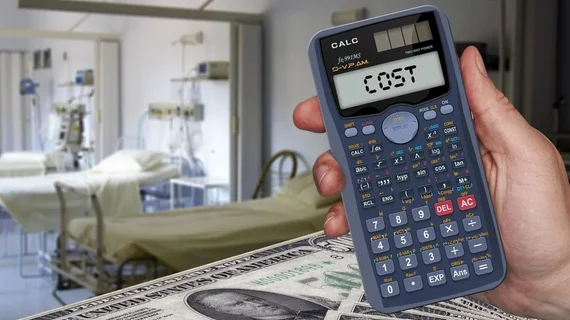National health expenditures neared $4T in 2019; spending expected to accelerate post-2020
National health spending accounted for 17.7% of gross domestic product in 2019 as it grew 4.6% to $3.8 trillion over 2018’s tally, according to updated data from CMS and an analysis published Dec. 16 in Health Affairs.
The rate of growth has been in 4.5% range for four years running, the authors of the analysis point out in a blog post discussing the study. The slice of the GDP dedicated to healthcare has remained similarly stable, as spending in the sector was 17.6% in 2018.
However, CMS projects the spending rate to speed up in the coming years, averaging 5.4% and reaching $6.2 trillion by 2028.
Lead study author Anne Martin, a CMS economist, suggests the forecast is subject to adjustment due to the impact of the COVID crisis this year.
“The full impact of the pandemic on the healthcare sector is still not known, but it will certainly have profound consequences on the provision and consumption of healthcare in 2020 and perhaps beyond,” she says in the blog post.
The analysis breaks 2019 health spending into expenditures for payers, providers and prescriptions as follows:
- Private health insurance spending grew by 3.7%, reached $1.2 trillion and accounted for 31% of total national health spending.
- Medicare spending grew by 6.7%, reached $799.4 billion and accounted for 21% of total national health care expenditures.
- Medicaid expenditures grew by 2.9%, reached $613.5 billion in 2019 and accounted for 16 percent of total national health spending.
- Hospital spending grew by 6.2%, reaching $1.2 trillion and representing 31% of overall healthcare spending.
- Physician and clinical services grew by 4.6%, reaching $772.1 billion and representing 20% of total healthcare expenditures.
- Retail prescription drugs grew by 5.7%, reaching $369.7 billion and representing 10% of overall health spending.
Study here (behind paywall), blog post here and CMS data sheet here.

